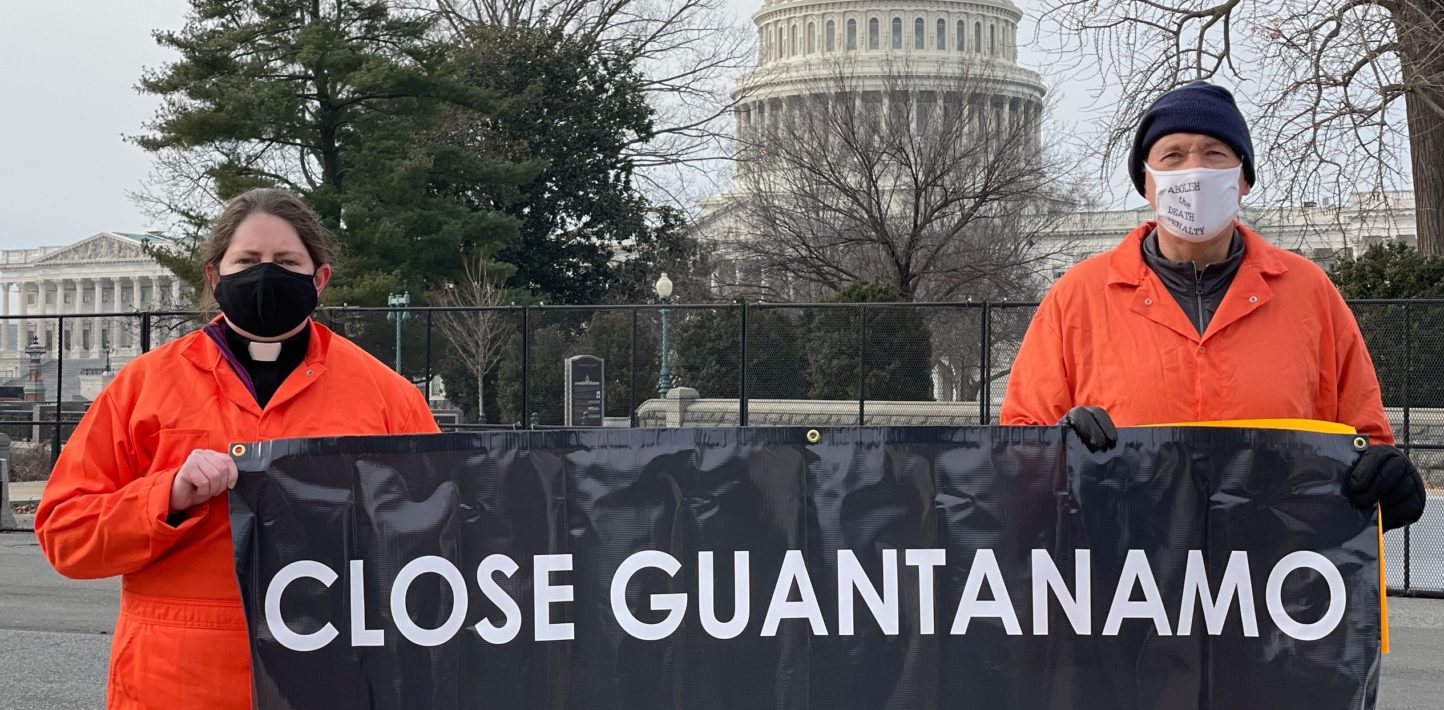At a recent demonstration outside the White House calling for the closure of the US military prison at the Guantánamo Bay naval base, a teenager approached a colleague to ask what the protest was all about. He told her he had never heard of the detention facility.
It’s been 20 years and four presidential administrations since Guantánamo opened, but for those born since then its terrifying stories sound more like the plot of a fictitious horror film. It is a disgraceful legacy we simply cannot pass on to future generations.
Opened in response to the September 11 attacks, Guantánamo has held almost 780 Muslim men and boys. Before their indefinite detention in Guantanamo, many were abducted, disappeared and brutally tortured in US-run secret prisons or by so-called allies in the “war on terror”. In Guantanamo, they were tortured, very few charged with crimes, and none given a fair trial. Kafkaesque military commissions set up to try them have proven ineffectual and unfair, denying defendants an impartial arbiter and access to critical evidence and victims their right to justice. Meanwhile, families of 9/11 victims have waited in vain for justice.
Amnesty International and many others around the world have doggedly campaigned to close the prison since its inception. President Biden, like Obama before him, has promised to close it, but so far has failed to do so. The Biden administration transferred one detainee out of the facility last July but has yet to reestablish the special envoy office in the State Department dedicated to the prison’s closure. On the contrary, the administration has just announced plans to build a new courtroom at Guantánamo to continue the work by the military commissions – the very opposite of a blueprint to shut the place down.
It is not only about closing Guantanamo. It is also about delivering accountability for the violations committed within its settings. Last year we heard former detainees like Majid Khan, Abu Zubayda, and Mohamedou Salahi describing their abuse at US-operated “black sites” abroad and in Guantánamo. The torture inflicted upon Salahi, who is now a bestselling-author and human rights defender, was portrayed in The Mauritanian, while Khan described enduring stress positions, beatings, force feeding using tubes tipped with hot sauce, and sodomy with a garden hose.
Guantánamo is an indelible stain on the United States’ history, a chapter it must now close and never repeat
Dr. Agnes Callamard
The European Court of Human Rights has ruled in civil cases against Italy, Lithuania, Macedonia, Poland and Romania for their complicity in the torture and enforced disappearance of people in the context of US rendition and secret detention programs, but there has never been any meaningful accountability in the United States. From those who authorized torture at the highest levels of the government to those who carried out the illegal “enhanced interrogation techniques,” no one has ever been held responsible for the crimes committed. This should begin with the declassification and full release of the US Senate Select Committee on Intelligence’s report on CIA torture.
Thirty-nine men remain in Guantánamo. Thirteen are still under indefinite detention, despite having been approved for transfer out – some over a decade ago. Twelve face charges in the military commissions, while the other 14 are living in a hellish limbo: not yet cleared for a transfer, yet never charged with a crime. Their plight is a relic of the overriding principles that have prevailed at Guantánamo since its inception – cruelty and arbitrariness.
The US government must take swift action to right this wrong: commit to the resolution of each detainee’s case, through their transfer and release without further delay and in accordance with international law. Or if there is sufficient admissible evidence under international law to prosecute internationally recognizable criminal offences this must be done through fair judicial resolution before a regularly constituted federal court without recourse to the death penalty.
Guantánamo is an indelible stain on the United States’ history, a chapter it must now close and never repeat. President Biden owes it to all of us – those who have experienced or watched Guantánamo with horror over the years, and new and future generations just now learning about it – to shut it down once and for all.
Agnes Callamard is the Secretary General of Amnesty International


